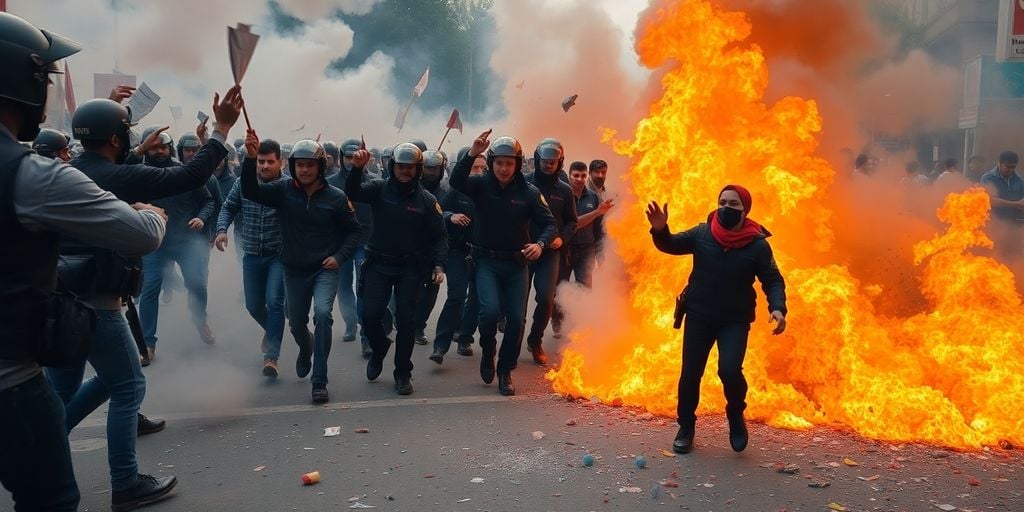Serbia is experiencing a significant escalation of protests against the ruling Serbian Progressive Party (SNS), marked by clashes with police and attacks on party offices. The months-long student-led demonstrations, initially sparked by a deadly railway station disaster, have intensified, with recent events including the setting ablaze of an SNS office in Valjevo and confrontations in Belgrade and Novi Sad. Protesters are expressing anger over alleged police brutality and systemic corruption, demanding snap elections and a restoration of democratic principles.
Key Takeaways
- Protests against the ruling SNS have escalated, involving clashes with police and attacks on party offices.
- Incidents of alleged police brutality have fueled public anger and solidarity among protesters.
- The protests, initially student-led, have gained broader support and are seen as the most significant challenge to President Aleksandar Vučić’s government.
- Demands include snap elections and a restoration of the rule of law and democracy.
Escalation of Unrest
The recent wave of protests has seen a dramatic increase in intensity, with demonstrators targeting SNS offices in various cities, including Belgrade, Novi Sad, and Valjevo. In Valjevo, an opposition councillor described the scenes as the most dramatic in the city’s history. The Serbian Interior Minister reported arrests and injuries, vowing that law violations would not be tolerated. Riot police have used tear gas to disperse crowds, and reports of police brutality against protesters, including minors, have surfaced.
Roots of the Protests
The current unrest can be traced back to a deadly railway station collapse in Novi Sad in November 2024, which many attributed to corruption and institutional failure. This tragedy, coupled with an alleged physical assault by SNS members on peaceful student protesters, ignited a broader movement. Generation Z has become a significant force, with protests shattering turnout records and coalescing around a mission to restore democracy and the rule of law, which critics argue have been eroded under President Aleksandar Vučić’s increasingly authoritarian rule.
Political Landscape and Future Prospects
Experts suggest these protests represent the most serious challenge to President Vučić’s tenure, potentially making his party electorally vulnerable for the first time since 2012. While the regime’s collapse is not seen as imminent, public dissatisfaction is growing. However, challenges remain, including the fragmentation of opposition parties and mistrust between student leaders and established political groups. The government is expected to potentially tighten its grip on power and further erode democratic foundations, despite potential backlash from the European Union.
Sources
- Serbian Ruling Party Office Set on Fire as Unrest Continues, Balkan Insight.
- Will Serbia’s protests change its future? | A Debrief with Florian Bieber, Atlantic Council.
- What is behind the recent escalation of Serbian protests?, European Western Balkans.
- Serbian Police Clash with Protesters Again Outside Ruling Party Office, Balkan Insight.
- One man, one state: Vučić and Serbia’s student protests, European Western Balkans.






